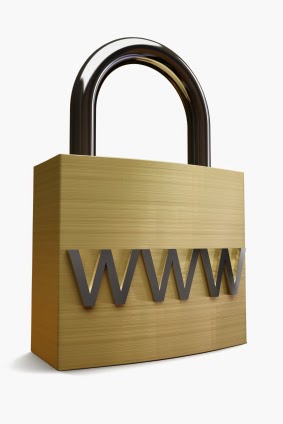 If you have been following the news for the last couple of weeks you may have read about two major security breaches that have been going on for months and years and nobody was aware that their private information was at risk. I will talk briefly about both of them.
If you have been following the news for the last couple of weeks you may have read about two major security breaches that have been going on for months and years and nobody was aware that their private information was at risk. I will talk briefly about both of them.The Heart Bleed Bug
The heart bleed bug is a flaw in the encryption standard used by a majority of websites. They recently found a programming error that would allow a hacker to trick the computer at the other end into sending your
confidential information to a bogus computer. This made it possible for hackers to steal the encryption keys, the codes used to turn encrypted data into readable information, allowing the hackers to intercept encrypted data moving to and from a site's servers. Which gave them access to your information.
Most of the articles that I've read about the Heart Bleed Bug are very technical in nature but the bottom line is this is potentially a very serious problem that we all may have been facing for two years and not realized it.
What can you do to protect yourself

Since the vulnerability has been going on for about two years and using it leaves no trace, assume that your accounts may be compromised. You should change your online passwords especially for services where privacy and security are major concerns.
Michael's arts and craft stores are hacked
Michael's stores incorporated said Thursday about 2.6 million credit and debit cards about 7% of all debit and credit cards used at its namesake stores may have been affected in a security breach.
The compromised data includes customer information such as payment
card numbers and expiration dates but there is no evidence that other personal information such as names, addresses or pin numbers were at risk Michael's said.
Aaron brothers is a subsidiary of Michael's and they also reported that they were attacked with about 400,000 cards potentially affected. About 3 million customers have been impacted by the data breach that lasted over eight months.
ITRC
I've mentioned in previous blogs the Identity Theft Resource Center and the report they produce that lists every company or organization that has had a security breach this year. As of April 15 there have been 233 companies or organizations that have had security breaches. That has resulted in 5,171,507 records that have been compromised. If you open up the link below you will be able to review the affected companies and see if you have done business with any of them.
The message I am trying to deliver in this blog is that everyone in this day and age should have a identity theft protection program.
 As you can see the two incidents mentioned above were going on for months and years and you have either no or very little knowledge of them. If you will take the time to review the ITRC report I believe you'll be shocked when you see the names of the companies, charities and agencies listed there. The first link is to their homepage, the second link takes you directly to the report.
As you can see the two incidents mentioned above were going on for months and years and you have either no or very little knowledge of them. If you will take the time to review the ITRC report I believe you'll be shocked when you see the names of the companies, charities and agencies listed there. The first link is to their homepage, the second link takes you directly to the report.http://www.idtheftcenter.org/
http://www.idtheftcenter.org/images/breach/ITRC_Breach_Report_2014.pdf
Other links of interest
richardbentley.us
https://sites.legalshield.com/aasites/Multisite? site=hub&assoc=rdbentley
http://seniorscamspodcast.com/index.html
http://infocard.cc/101_Marketing_Podcasts.html
http://101smallbusinessmastermind.com/Master_Mind_Pages.html




